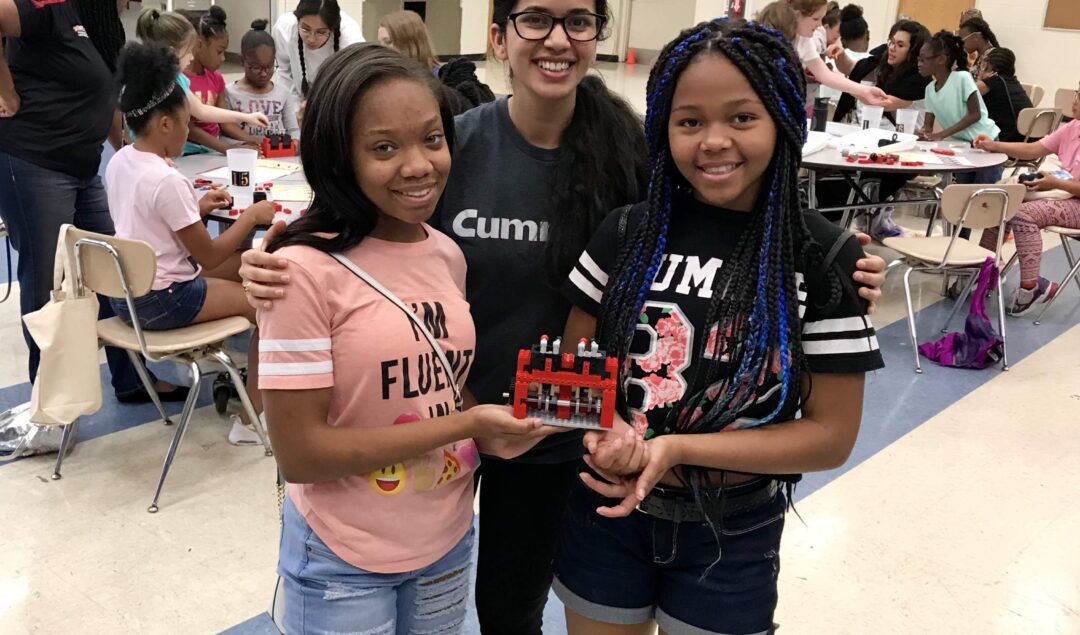‘It’s Okay To Change Paths’: Engineer Turned IT Project Manager Shares Journey That Led Her To Cummins

Cummins is hiring on pocitjobs.com
When speaking to Kasturi Sahasrabuddhe, IT Project manager at Cummins – it’s clear that she’s finally happy where she is. Much like a lot of us – she’s tried and tested different careers from electronics engineering, Business analyst to an IT manager, and along the way she has learned dozens of skills that have helped her thrive in her current position.
Sahasrabuddhe doesn’t shy away from speaking about her goals, including giving back to the younger generation and teaching others to remain their authentic selves.
The project manager, who has spent almost a decade working for Cummins, an American multinational corporation that designs, manufactures, and distributes engines, filtration, and power generation product, said although she’s faced several hurdles as a person of color including anxieties with her Visa – one of the biggest hurdles was that of conformity.
She said it can be easy to lose yourself in the midst of the crowd, especially when trying to fit in and adapt to a new culture but she advises every aspiring techie to take things one step at a time and remain true to who you are.
Here POCIT sat down with Sahasrabuddhe to learn more about her role at Cummins, how she got there and what advice she’d give those looking to follow in her footsteps.
Kindly introduce yourself and what you do at Cummins
I am an IT project manager at Cummins. It’s my seventh year at the company and I have moved from being a business analyst to an IT project manager. In my current role I manage and drive the global IT supply chain projects. That means I support the optimizing of our IT supply chain systems and processes.
Tell me about your career trajectory and your journey to Cummins.
That’s a very interesting question because my journey so far has been pretty diverse. I want to mention that I have struggled myself, thinking that it is not normal to change your fields or divert from what you have decided in your career.
But actually, it’s okay to venture into other passions and interests.
Let me start by telling you that from high school, I was really interested in math, I knew that math and science were something that I was good at. So my natural progression, considering that I really liked mathematics was that I wanted to pursue engineering.
I pursued my undergraduate in electronics engineering but in the second year of my engineering, I realized that I am not really enjoying it. Thus, I started looking for other courses and I stumbled upon industrial engineering.
After my first degree in electronics, I worked for a year in India at an IT consulting firm as a software engineer. After that, I came to the US to pursue my industrial engineering degree and I absolutely fell in love with supply chain management topics.
I came across an internship at Cummins which was a supply chain analyst position but I didn’t get that job instead, they offered me an IT business analyst position and because I had experience working in IT in India – I thought it would be a good match.
It worked really well for those three months, and working for Cummins was great and I decided that I want to do it full time as well.
Even after joining Cummins, I had various roles – my journey in different fields has been a strength for me instead of a weakness. Now when I look back on it, there have been moments when I thought ‘why am I not following just one path,’ but actually it has been my strength so far, because I have got various experiences.
What’s your experience of being a person of color in tech and at Cummins?
I would first start by telling you that the term person of color or women of color, I wasn’t really familiar with that term when I was back in India, because I was just a person and I was just a woman.
After coming to the US, though, I started realizing that I am identified here as a person of color, there is a classification that I am brown here and that did take me time to internalize. It was pretty significant that people were vocal about that these are white people, these are black people, brown people, and getting to a point where I could familiarize myself with that, it took a little time.
There have been challenges for sure but one I feel isn’t spoken about as often is that you constantly have this pressure of representing your country, your culture because you’re like an outsider, you have to deal with the visa processes and they become part of your life. It sometimes affects your career decisions because even when you are in the technology industry, you might have to stick with one company or might have to stick with one job profile because of visa issues.
But at Cummins, I have been fortunate and I feel really proud that I have great examples of leadership, who are people of color and who are women of color; this gives you an affirmation that you can be there too.
I have always tried to fit in and I struggled with that for the first couple of years where I thought – oh, I need to fit in, to comply or to just follow a very standard way of behavior in my team because it’s a new culture for me. It took me years to realize that my authenticity is what is valued.
What kind of support did you find valuable in advancing in your career?
One of the biggest pieces of support that I have got in my career at Cummins is mentorship. I strongly believe, considering my own journey that you need to have mentorship and sponsorship in your career to advance.
I have had work anxieties and breakdowns but what helped me is that it was addressed by the right people and I’m glad for that. You do not have to have just one mentor; I have a mentor who is also a person of color and can very well associate some of my difficulties with considering the immigration or visa difficulties. I have another mentor who is a woman of color who guides me to navigate through any work-related stress and questions. Then I also have a mentor who would guide me on my passion for community service. I really help to have a support system around you and only ‘you’ are responsible to build it and maintain it.
What are your tips for POC getting into the tech industry?
I have two tips for POC getting into the tech industry, be confident about your core, technical skills, and sharpen them whenever you get an opportunity. And secondly, bring your most authentic self to your work and team. Trust me, your background, culture and authenticity are assets to yourself as well as to your company.




